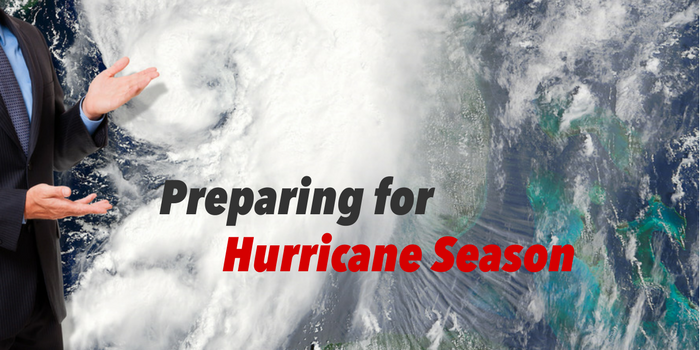It’s summertime, and hurricane season is upon us through late fall. Texas coastal communities face the greatest threat from hurricane events, but inland communities are also impacted when one of these storms occurs. Therefore, it’s important to know what to do during hurricane season, and preparing your community can make all the difference when and if disaster strikes.
Hurricanes are very powerful and dangerous storms characterized by winds that can reach over 150 mph. Not only can they cause catastrophic damage to coastlines and create dangerous coastal water conditions (such as strong rip currents), hurricanes can also spawn tornadoes, cause flash flooding, and inflict extensive property damage due to destructive winds.
If you live in a potentially affected area, the most important thing you can do to prepare for such an event is to plan ahead. Below are 6 essential tips for dealing with such an event:
- Know your community’s risk and build an emergency plan that can save time and lives in the event of crisis. Create a plan to safely evacuate all persons and pets. Give special consideration to children, the elderly, and those with disabilities. Be sure every family or community member is clear on this plan of action in the event that an evacuation becomes necessary.
- Review hurricane evacuation maps and determine routes ahead of time. Know where shelters are located along your evacuation route in the event that overcrowded roads prevent you from reaching your intended destination.
- Identify the hazards for your particular community. Remain alert, recognize warning signs, and be aware of the various channels of emergency communication (such as emergency radio, special sirens, TV broadcasts, and local alerts). Stay informed of changing weather conditions in and around your region.
- Check to see that insurance policies are up-to-date and include coverage for such an event.
- Prepare an emergency kit that contains essential supplies, important documents, and provisions. Items such as water (four quarts per person, per day), food (minimum three day supply), medications (30 day supply) and/or assistive devices, changes of clothing, a first aid kit, battery-operated radio, flashlight with extra batteries, signal flares, waterproof matches, garbage bags and plastic ties, can opener, pocket knife, and mess kits are essential.
- If possible, board up doors and windows with plywood, bring in outdoor objects such as trash cans, barbeque grills, and patio furniture, and remember to cut off electricity and gas before leaving. Secure any boats or watercraft; never try to tow a trailer or boat in high winds! If you’re in a potential flood area, move all valuables to a second story, if possible.
It’s also important to consider how you and/or your community will respond if you are not at home when emergency strikes. Have a back-up plan; communicate and coordinate, as disaster can strike at any time. It may be a good idea to address these topics and strategize a community plan during your next board meeting.
For more information on this and related topics, please visit the Texas General Land Office at https://recovery.texas.gov/preparedness/hurricane-preparedness/index.html and Texas Hurricane Center at https://gov.texas.gov/hurricane. We at Spectrum want to encourage everyone to stay safe this hurricane season!







